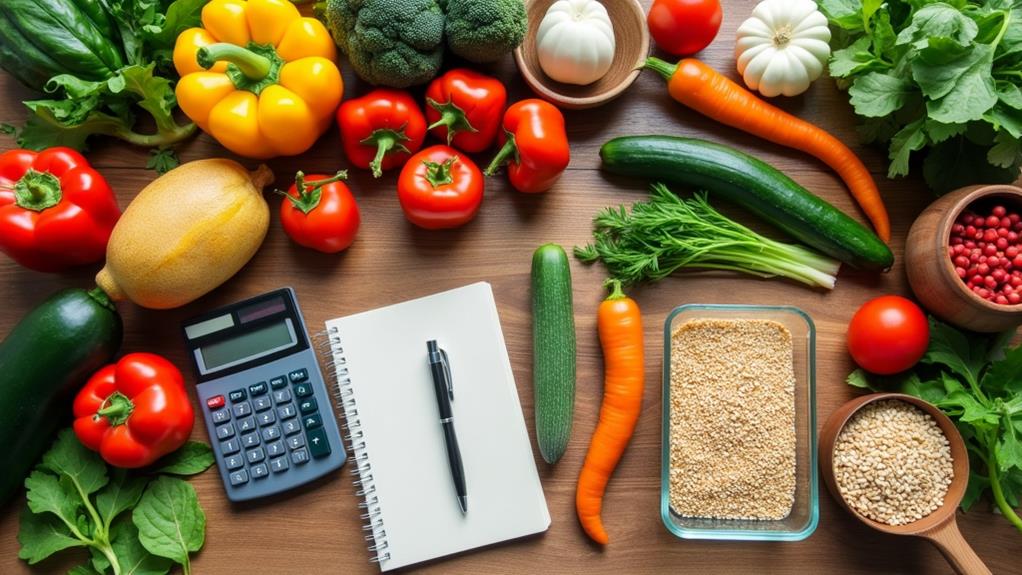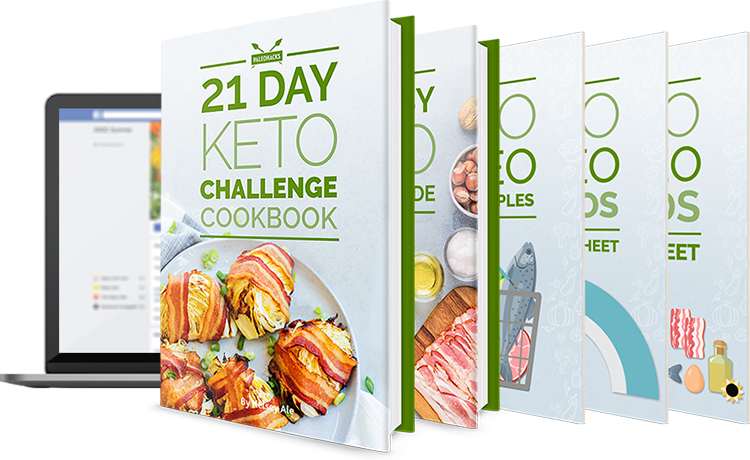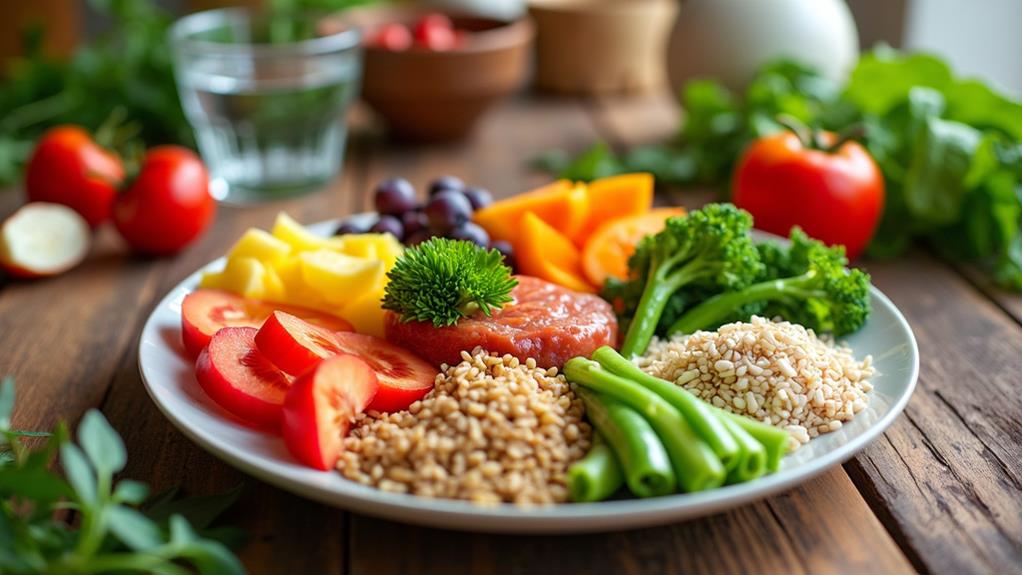When you're working with a tight budget, every dollar counts, and planning your meals can make a significant difference. By organizing your food expenses, you not only stretch your funds further but also guarantee you're eating healthier. Imagine being able to prioritize nutrient-dense foods, cut down on waste, and still enjoy tasty meals—all without breaking the bank. But how exactly can you achieve this balance of nutrition and cost-effectiveness? Let's explore some practical strategies that can help you make the most of every grocery trip and meal preparation session.
Importance of Budgeting
Budgeting is essential when it comes to planning your food expenses. It safeguards you spend wisely and don't overshoot your financial limits. Practicing financial discipline allows you to allocate funds appropriately, making sure essential needs are met without compromising other areas of your budget.
By planning, you can avoid unnecessary splurges and impulse buys that often lead to wasted money and food. A well-structured budget helps you track where your money goes, giving you a clear picture of your spending habits. This awareness is pivotal for making informed decisions, like opting for affordable yet nutritious ingredients.
Moreover, sticking to a budget builds a safety net for emergency funding. Unexpected events or financial crises can strike anytime, and having a reserve can make a significant difference. Budgeting for your food expenses frees up money that can be diverted to an emergency fund, protecting you from unforeseen circumstances.
In the long run, consistent budgeting fosters a sense of control over your finances. This discipline not only helps in managing current expenses but also sets a foundation for future financial stability. Remember, every dollar saved contributes to building a more secure financial future.
Nutritional Benefits
When planning food on a budget, it's crucial to ponder the nutritional benefits of your choices. Focusing on nutrient-dense foods guarantees you get the most vitamins, minerals, and other essential nutrients for your money. Nutrient density refers to the amount of nutrients a food contains relative to its calorie content. Opting for nutrient-dense options means you can enjoy healthier meals without breaking the bank.
You'll also want to ponder food synergy. This is the concept that certain foods, when eaten together, enhance each other's nutritional value. For instance, pairing vitamin C-rich foods like bell peppers with iron-rich spinach can improve iron absorption. By understanding food synergy, you can maximize the benefits of each meal.
- Nutrient-dense foods: Choose items like leafy greens, beans, whole grains, and lean proteins.
- Food synergy: Combine foods that boost each other's nutritional impact.
- Variety: Incorporate a range of different foods to cover all nutrient bases.
- Home cooking: Prepare meals at home to control ingredients and portion sizes.
Cost-Effective Ingredients
Ever wondered how to make your dollar stretch further at the grocery store? By focusing on cost-effective ingredients, you can create delicious, nutritious meals without breaking the bank. Start by stocking up on pantry staples like rice, beans, and pasta. These items are not only affordable but also versatile, allowing you to use them in various dishes throughout the week.
Consider making affordable swaps to save even more. For instance, instead of buying expensive cuts of meat, opt for cheaper protein sources like lentils or canned tuna. They're just as nutritious and can be used in an array of recipes. Additionally, frozen vegetables are a great substitute for fresh ones when you're looking to cut costs. They're often just as nutritious and have a longer shelf life.
Don't forget about bulk buying. Purchasing items like oats, flour, and spices in larger quantities can be more economical in the long run. Plus, having these essentials on hand makes meal planning easier and reduces the temptation to eat out.
Reducing Food Waste
Reducing food waste is a key aspect of managing a budget and promoting sustainability. When you waste less food, you save money and lessen your environmental impact. One effective way to track your food usage and minimize waste is by keeping a food diary. This can help you identify what you actually consume and what often gets thrown out, allowing you to adjust your purchasing habits accordingly.
Improving your kitchen habits is another essential step. Start by properly storing your food to extend its shelf life. Use clear containers for leftovers so you can easily see what needs to be eaten soon.
Plan your meals: Outline what you'll eat for the week and stick to it.
Buy only what you need: Avoid impulse buys by sticking to your shopping list.
Utilize leftovers: Get creative with leftover ingredients to create new meals.
First in, first out: Use older items before newer ones to prevent spoilage.
Meal Prep Strategies
Meal prep strategies can revolutionize your approach to eating on a budget. By planning ahead, you'll save both time and money. Start by keeping a food diary. Track what you eat and note which ingredients you frequently use. This helps you identify patterns and make smarter shopping lists.
Batch cooking is another game-changer. Choose a day to cook large quantities of your favorite budget-friendly meals. Store them in portioned containers, and you'll have ready-to-eat meals all week. Think soups, casseroles, or stir-fries—these dishes are easy to make in bulk and can be stored in the fridge or freezer.
When you meal prep, you'll avoid the temptation of pricey takeout or last-minute grocery runs. Plus, you'll waste less food since everything is planned and prepped in advance. With a food diary, you can also monitor your nutritional intake, ensuring you get balanced meals without overspending.
Don't forget to label your containers with the date and contents. This way, you can keep track of what needs to be eaten first. With these meal prep strategies, sticking to your budget while enjoying delicious, home-cooked meals becomes a breeze.
Portion Control Tips
Portion control is a crucial aspect of managing your food budget effectively. By paying attention to how much you eat, you can make your food last longer and reduce unnecessary expenses.
- Use food scales: Measuring your portions accurately with food scales can prevent overeating and guarantee you're not wasting food. This simple tool can save you money by helping you stick to the right serving sizes.
- Mindful eating: Pay attention to your hunger and fullness cues. Eating slowly and savoring each bite can help you recognize when you're full, preventing overeating.
- Pre-portion snacks: Instead of eating straight from the bag, divide snacks into smaller, individual portions. This helps you avoid consuming more than you intended.
- Use smaller plates: Serving your meals on smaller plates can trick your brain into feeling satisfied with less food. It visually makes your portions appear larger, helping you eat less.
Shopping Smartly
When it comes to sticking to a budget, shopping smartly is key to making your money go further. One of the best strategies is to use store coupons. These little pieces of paper or digital codes can substantially reduce your grocery bill. Before you head to the store, take a few minutes to check your local supermarket's website or app for available coupons. You can often find discounts on products you already plan to buy, turning a small effort into big savings.
Another savvy trick is to leverage cashback apps. Apps like Ibotta, Rakuten, or Checkout 51 offer rebates on everyday purchases. Simply scan your receipt after shopping, and you'll earn cash back on qualifying items. Over time, these small amounts can add up, giving you more breathing room in your budget.
Plan your shopping trips around sales and discounts. Make a list of what you need and stick to it to avoid impulse buys, which can quickly drain your funds. Combining store coupons and cashback apps with a well-thought-out list guarantees you're maximizing every dollar. By shopping smartly, you'll find it easier to stay within your budget and still enjoy quality meals.
Seasonal Produce
Embracing seasonal produce is a game-changer for anyone looking to eat well on a budget. When you buy fruits and vegetables that are in season, you'll find they're often much cheaper and fresher than out-of-season options. Seasonal produce is typically abundant, which drives prices down and offers a great way to save money while still enjoying high-quality food.
Visiting farm stands and buying directly from local farmers can further enhance your savings. You're also supporting the local economy and reducing environmental impact by cutting down on the transportation of goods. Plus, farm-fresh produce often tastes better and has higher nutritional value.
Here's why you should focus on seasonal produce:
- Cost Savings: Seasonal items are more plentiful, making them less expensive.
- Better Taste: Fruits and vegetables harvested at their peak are more flavorful.
- Nutritional Value: Fresher produce retains more nutrients.
- Supporting Local Economy: Buying from farm stands and local farmers helps your community thrive.
Affordable Proteins
Finding affordable proteins is crucial for maintaining a balanced diet without breaking the bank. You don't have to compromise on nutrition just because you're on a budget. Start by exploring pantry staples like beans, lentils, and canned tuna. These items are not only inexpensive but also versatile. You can use them in a variety of dishes, from soups and stews to salads and casseroles.
Look for international inspiration to diversify your protein sources. For instance, tofu and edamame are staples in Asian cuisine and are both affordable and nutritious. Mexican dishes often feature black beans and chickpeas, which are excellent sources of protein and fiber. By incorporating these globally-inspired ingredients, you can create delicious meals without spending a fortune.
Don't forget about eggs, another cost-effective protein source. They can be used in countless ways—scrambled for breakfast, boiled in salads, or even baked into casseroles. Buying in bulk can also save you money in the long run. Planning your meals around these affordable proteins guarantees you're eating healthily while staying within your budget. So, stock up on these pantry staples and get creative in the kitchen!
Long-Term Savings
Although saving money on groceries can seem intimidating at first, planning for long-term savings can substantially ease your financial burden over time. By adopting financial discipline and smart shopping habits, you can achieve significant savings without sacrificing nutrition or variety.
When you plan your meals and shopping lists carefully, you gain budget flexibility, allowing you to allocate funds more efficiently. This means you can take advantage of bulk buying and sales, both of which contribute to long-term savings. Additionally, reducing food waste by using leftovers creatively guarantees that you get the most out of what you purchase.
- Buy in bulk: Purchasing larger quantities often lowers the cost per unit.
- Utilize sales and coupons: Keep an eye on discounts and special offers to maximize savings.
- Cook at home: Preparing meals from scratch is usually cheaper and healthier than eating out.
- Store food properly: Proper storage extends the shelf life of your groceries, reducing the likelihood of waste.
At a Glance
By planning your meals on a limited budget, you'll gain control over your finances and improve your health. You'll discover cost-effective ingredients, reduce food waste, and enjoy nutritious, homemade meals. Meal prepping and shopping smartly become second nature, making it easier to stick to your budget. Embrace seasonal produce and affordable proteins, and you'll save money in the long run. Start meal planning today, and you'll see both your wallet and well-being flourish.





